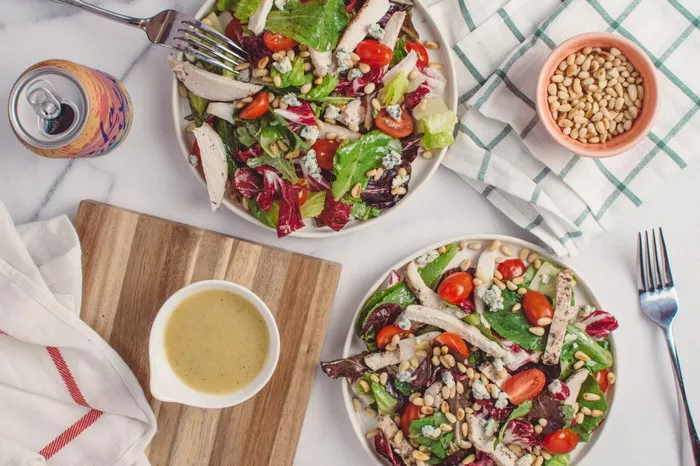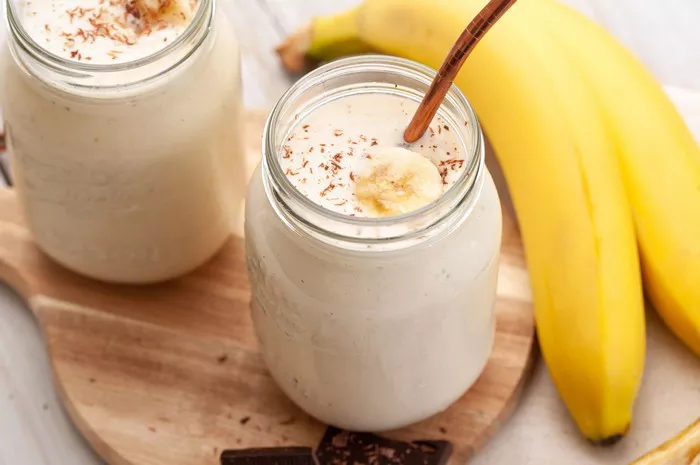Pregnancy is a remarkable journey marked by transformative changes in both body and life. As an expectant mother, ensuring optimal nutrition is crucial to support your well-being and the growth and development of your baby. Among the meals that hold significant importance, breakfast takes the spotlight as it kickstarts your day and sets the tone for nourishment. In this article, we delve into the world of healthy breakfast choices for pregnant women, shedding light on the nutrients that matter, culinary creativity, and the art of crafting a balanced morning meal.
The Nutrient Foundation: Key Nutrients for Pregnancy
A healthy breakfast for pregnant women goes beyond satisfying hunger – it’s a strategic blend of nutrients that provide the energy and support necessary for both you and your growing baby. Here are some key nutrients to prioritize:
Protein: Protein plays a vital role in tissue development and repair. Incorporate sources like eggs, dairy products, lean meats, poultry, legumes, and nuts into your breakfast.
Folate: Folate, a B-vitamin, is essential for preventing neural tube defects in the developing baby. Choose fortified cereals, leafy greens, citrus fruits, and legumes for a folate-rich breakfast.
Calcium: Calcium is vital for bone health and the development of the baby’s bones and teeth. Opt for dairy products, fortified plant-based milks, and calcium-rich foods like spinach.
Iron: Iron supports the increased blood volume during pregnancy and helps prevent anemia. Enjoy iron-rich foods such as fortified cereals, lean meats, poultry, beans, and dried fruits.
Fiber: Fiber aids digestion and helps manage constipation, a common concern during pregnancy. Whole grains, fruits, vegetables, and seeds are excellent sources of fiber.
Omega-3 Fatty Acids: Omega-3 fatty acids contribute to the baby’s brain and eye development. Include sources like chia seeds, flaxseeds, walnuts, and fatty fish (if approved by your healthcare provider).
Vitamin D: Vitamin D supports calcium absorption, bone health, and immune function. While sunlight is a natural source, consider fortified foods and supplements if recommended by your healthcare provider.
Vitamin C: Vitamin C enhances iron absorption and boosts the immune system. Include citrus fruits, strawberries, and bell peppers in your breakfast.
Vitamin A: Vitamin A is important for vision and immune system health. Opt for colorful vegetables and fruits like sweet potatoes and cantaloupe.
Crafting a Wholesome Breakfast Plate
Now that we’ve explored the essential nutrients, let’s delve into the components that make up a balanced and wholesome breakfast for pregnant women:
1. Whole Grains for Sustained Energy
Incorporate whole grains as the foundation of your breakfast. Whole grains provide complex carbohydrates that release energy gradually, preventing blood sugar spikes. Choose options like whole-grain bread, oatmeal, quinoa, whole-grain cereals, and whole wheat tortillas.
Oatmeal: A warm bowl of oatmeal topped with nuts, seeds, and fresh fruits provides a comforting and nutritious start to the day.
Whole-Grain Toast: Enjoy whole-grain toast with avocado, a sprinkle of seeds, and a side of Greek yogurt for added protein.
Whole Wheat Pancakes or Waffles: Opt for whole wheat pancakes or waffles served with a dollop of yogurt and a medley of berries.
2. Protein-Packed Options
Protein is a cornerstone nutrient during pregnancy, supporting tissue growth and repair. Incorporate protein-rich foods to fuel your morning.
Eggs: Eggs are a versatile protein source. Prepare scrambled eggs with sautéed vegetables or enjoy a boiled egg with whole-grain toast.
Greek Yogurt: Greek yogurt offers a double dose of protein and calcium. Top it with granola, fresh fruits, and a drizzle of honey.
Nut Butter: Spread nut butter on whole-grain toast or blend it into smoothies for an added protein boost.
3. Fruits and Vegetables: Colorful Nutrient Powerhouses
Colorful fruits and vegetables are rich in vitamins, minerals, and antioxidants that support overall health and well-being.
Fruit Salad: Create a vibrant fruit salad with a mix of berries, citrus fruits, and melon. Top with a sprinkle of chia seeds for added fiber and omega-3 fatty acids.
Smoothies: Blend fruits like banana, berries, and mango with spinach or kale for a nutrient-packed smoothie. Add a scoop of protein powder if desired.
Vegetable Omelette: Fill your omelette with sautéed vegetables like bell peppers, spinach, and mushrooms for a flavorful and nutrient-rich breakfast.
4. Dairy and Dairy Alternatives
Dairy products and fortified plant-based milks are excellent sources of calcium and vitamin D.
Milk or Fortified Plant-Based Milk: Enjoy a glass of milk or fortified plant-based milk as a refreshing beverage alongside your breakfast.
Cheese: Incorporate cheese into your breakfast with options like cottage cheese or sliced cheese on whole-grain toast.
Yogurt Parfait: Layer Greek yogurt, granola, and fresh berries to create a delicious and satisfying yogurt parfait.
5. Healthy Fats for Brain Development
Healthy fats are essential for the baby’s brain and eye development. Incorporate sources of omega-3 fatty acids into your breakfast.
Chia Seed Pudding: Create a chia seed pudding by soaking chia seeds in almond milk or coconut milk. Top with nuts, fruits, and a drizzle of honey.
Avocado: Sliced avocado is a creamy addition to whole-grain toast or a breakfast wrap.
Nuts and Seeds: Sprinkle nuts and seeds like almonds, walnuts, and flaxseeds onto your yogurt, oatmeal, or smoothie.
6. Hydration Matters
Stay hydrated by starting your morning with a glass of water. Hydration is essential for overall health and supports proper digestion.
7. Balanced Portions and Mindful Eating
While selecting nutrient-rich foods is important, portion control and mindful eating also play a crucial role. Listen to your body’s hunger and fullness cues and aim for a balanced meal that satisfies without overindulging.
Creative Breakfast Ideas
Let’s explore some creative and nutritious breakfast ideas tailored for pregnant women:
Peanut Butter Banana Wrap: Spread peanut butter on a whole wheat tortilla, add sliced banana, and roll it up for a protein-packed and portable breakfast.
Berry Quinoa Parfait: Layer cooked quinoa, Greek yogurt, and a medley of berries to create a hearty and refreshing parfait.
Veggie Breakfast Burrito: Fill a whole-grain tortilla with scrambled eggs, sautéed vegetables, and a sprinkle of cheese for a satisfying and balanced breakfast wrap.
Egg and Veggie Muffins: Prepare mini muffins by whisking eggs with chopped vegetables and baking until set. These make for a convenient and protein-rich breakfast option.
Nutty Overnight Oats: Prepare overnight oats by combining rolled oats, almond milk, chia seeds, and a spoonful of nut butter. Top with sliced fruits and nuts in the morning.
Fruit and Nut Yogurt Bowl: Layer Greek yogurt, mixed nuts, and diced fruits like mango, kiwi, and berries for a delightful and nutrient-packed bowl.
Consultation and Individual Needs
It’s important to remember that individual nutritional needs vary, and pregnancy brings about unique requirements. Always consult your healthcare provider or a registered dietitian before making significant dietary changes during pregnancy. They can provide personalized guidance based on your medical history, dietary preferences, and any specific needs you may have.
Conclusion
A healthy breakfast for pregnant women is not only a nourishing start to the day but also a mindful investment in the health and well-being of both you and your baby. Prioritizing a variety of nutrient-rich foods – from whole grains to protein sources, colorful fruits, and healthy fats – sets the stage for balanced nutrition and sustained energy throughout the day. As you embark on this remarkable journey, let your breakfast choices reflect your commitment to providing optimal nourishment and care for both you and your growing bundle of joy.























